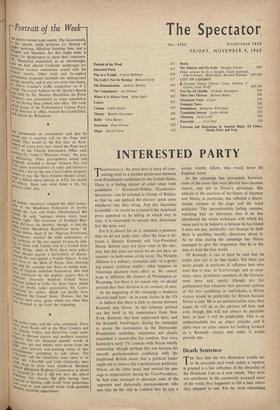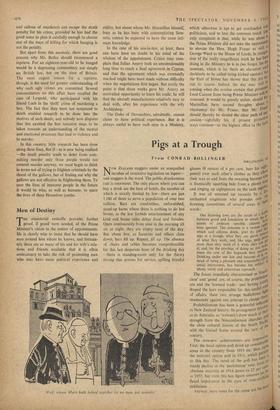Death Sentence
THE fact that the two Hounslow youths are to be executed next week unless a reprieve is granted is a fair reflection of the absurdity of the Homicide Law as it now stands. They were not murderers in the commonly accepted sense of the word; they happened to kill a man whom they planned to rob. Yet the most calculating and callous of murderers can escape the death penalty for his crime, provided he has had the good sense to plan it carefully enough to choose one of the ways of killing for which hanging is not the penalty.
But apart from this anomaly, there are good reasons why Mr. Butler should recommend a reprieve. For an eighteen-year-old to be hanged would be a depressing commentary not simply on British law, but on the state of Britain. The most cogent reason for a reprieve, though, is the need for greater understanding of why such ugly crimes are committed. Several commentators on this affair have recalled the case of Leopold, who participated with his friend. Loeb in the 'thrill' crime of murdering a boy. The fact that they Were not sentenced to death enabled research to be done into the motives of such deeds; and nobody now disputes that this enabled the first tentative steps to be taken towards an understanding of the mental and emotional processes that lead to violence and Jo murder.
In this country, little research has been done along these lines, But if—as is now being realised —the death penalty tends to deter from com- mitting murder only those people would not commit murder anyway, we must begin to think in terms not of trying to frighten criminals by the threat of the gallows, but of finding out why the gallows are not effective in frightening them. To save the lives of innocent people in the future it would be wise, as well as humane, to spare the lives of these Hounslow youths.















































 Previous page
Previous page